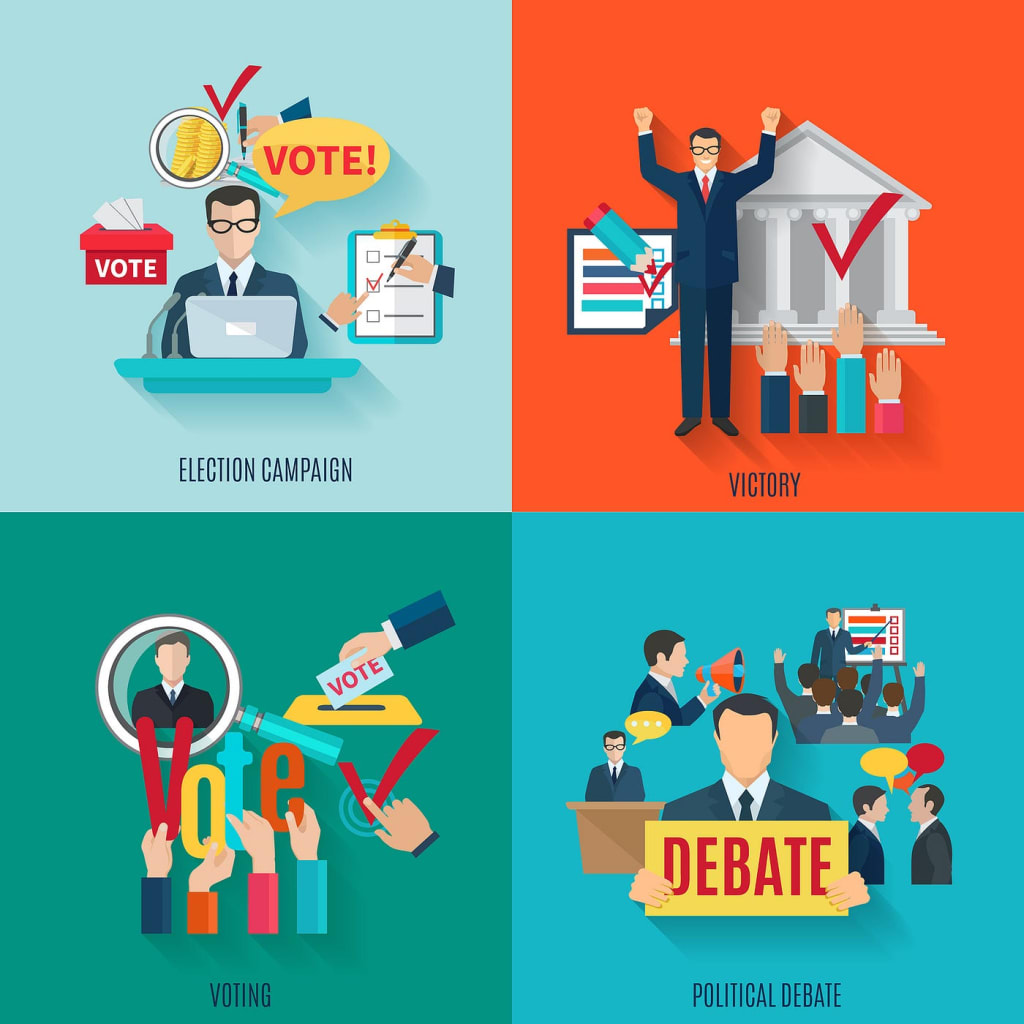Social Media and Politics
The Influence of Social Media on Politics and Democracy

Introduction
In today's digital age, the influence of social media on politics and democracy cannot be underestimated. With the rise of platforms like Facebook, Twitter, and Instagram, the way we engage with political information, express our opinions, and participate in the democratic process has undergone a significant transformation. This article delves into the profound impact of social media on politics and democracy, exploring both the positive and negative implications it presents.
Understanding the Power of Social Media
The Advent of Social Media Platforms
Social media platforms have revolutionized the way people connect, communicate, and share information. These platforms provide individuals with a powerful voice and a global reach, enabling them to express their opinions, mobilize support, and engage with political content like never before.
Amplifying Political Discourse
One of the significant ways social media has influenced politics is by amplifying political discourse. Previously, political conversations were confined to traditional media outlets and face-to-face interactions. Now, anyone with an internet connection can participate in discussions, share their views, and engage in debates on social media platforms.
Engaging the Masses
Social media has also played a pivotal role in engaging the masses, especially younger generations, in political issues. With its user-friendly interfaces and real-time updates, social media has made politics more accessible and relevant to individuals who may have felt disconnected or disinterested in the past. It has become a platform for civic engagement, encouraging political activism and awareness.
The Positive Impact on Politics and Democracy
Broadening Political Participation
Social media has significantly broadened political participation by breaking down barriers to entry. It has empowered individuals from diverse backgrounds to engage in political discussions, advocate for their rights, and support causes they believe in. This increased inclusivity has the potential to enhance democratic processes by ensuring a more representative and diverse range of voices are heard.
Facilitating Grassroots Movements
Historically, grassroots movements required extensive resources and organizational structures to gain momentum. Social media has democratized the process by providing an accessible platform for individuals to mobilize and galvanize support for various causes. Movements like the Arab Spring and the Black Lives Matter movement have gained global attention and support through the power of social media.
Real-Time Information and Accountability
Social media's instantaneous nature allows for the rapid dissemination of information. It enables citizens to stay informed about political events, policy changes, and breaking news in real-time. Moreover, it provides a means for holding politicians and governments accountable for their actions, as scandals and controversies can quickly spread and reach a wide audience.
The Negative Impact on Politics and Democracy
Spread of Misinformation and Fake News
One of the most significant challenges arising from social media's influence on politics is the spread of misinformation and fake news. The ease of sharing information on social platforms has created fertile ground for the dissemination of false or misleading content, which can manipulate public opinion, erode trust in institutions, and distort the democratic discourse.
Filter Bubbles and Echo Chambers
While social media has the potential to connect people with diverse perspectives, it can also contribute to the creation of filter bubbles and echo chambers. Algorithms designed to personalize content often show users information that aligns with their existing beliefs, reinforcing their biases and limiting exposure to alternative viewpoints. This phenomenon can hinder healthy political discussions and contribute to polarization.
Influence of Foreign Actors
Social media has become a battleground for foreign actors seeking to influence political processes in other countries. Through coordinated misinformation campaigns, these actors can sow discord, amplify divisions, and undermine trust in democratic institutions. The 2016 U.S. presidential election interference and subsequent revelations highlighted the vulnerability of social media platforms to such manipulation.
Mitigating the Challenges
Strengthening Media Literacy
To address the challenges posed by misinformation and fake news, promoting media literacy is crucial. Educating individuals on how to critically evaluate information, fact-check sources, and identify misleading content can empower them to make informed decisions and become more discerning consumers of political information on social media.
Transparent Algorithms and Regulation
Social media platforms should prioritize transparency in their algorithms to mitigate the risks of filter bubbles and echo chambers. By providing users with clearer insights into how content is selected and personalized, individuals can have a better understanding of the information they are exposed to. Additionally, governments and regulatory bodies can play a role in establishing guidelines and standards to ensure accountability and responsible use of social media platforms.
Collaborative Efforts
Addressing the challenges associated with social media's impact on politics and democracy requires collaborative efforts from various stakeholders. Governments, social media companies, civil society organizations, and users themselves should work together to develop strategies that promote digital citizenship, foster healthy political discourse, and safeguard democratic values in the online sphere.
Conclusion
Social media has emerged as a powerful force in shaping politics and democracy. Its influence has both positive and negative implications, from amplifying political discourse and engaging the masses to spreading misinformation and fostering polarization. To harness the potential of social media for the betterment of democracy, it is essential to mitigate the challenges it poses through media literacy, transparency, and collaborative efforts. By doing so, we can navigate the evolving landscape of social media and leverage its transformative power to strengthen democratic processes and ensure a more informed and engaged citizenry.
About the Creator
Taaha Sardar Naik
Hi, I'm Taaha. I am a highly experienced writer with a deep understanding of SEO and digital marketing. When you choose to work with me, you can trust that I will devote my full attention to making your content flawless.






Comments
There are no comments for this story
Be the first to respond and start the conversation.